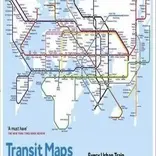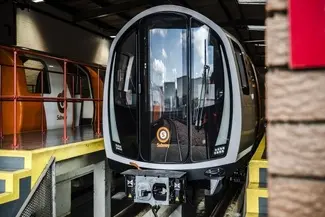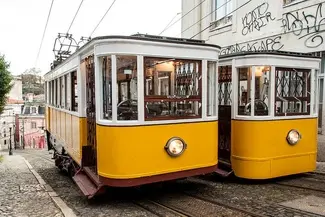|
Code:
78620
|
Rwanda pact with Dubai Port promising

TIN news: Some may wonder, what is all the excitement about the Rwanda government signing up Dubai Port World (DPW) to set up the Kigali Logistics Platform (KLP)?
The simple answer is; it means greater efficiency in handling both imports and exports and lower costs for all concerned. It will also create new jobs.
Rwanda trade minister, Francois Kanimba said the agreement with the world’s biggest operator of marine terminals, will mean reduced transport costs and increased profits for businesses.
The fact that DPW is involved symbolises strong investor confidence in this $30 million venture. Suhail Albanna, the DPW Senior Vice President and Managing Director for the Middle East and Africa, said they are also attracted by the friendly business environment growing in Rwanda.
Technically KLP when completed will be an Inland Port. These facilities are located at a considerable distance from sea ports, but by way of an integrated transport system (rail and road) can process international trade and promote value-added services as goods move through the supply chain.
There are obvious advantages for importers and exporters, as well as ease pressure on Mombasa, which is Rwanda’s servicing port on the Norther Corridor. Instead of port delays caused by customs clearance and inspection, the containers are off-loaded and ferried to KLP. Container transfer at the seaport can be speeded up and container handling space can be reduced by transferring functions to an inland site away from the port and coast.
For all intent and purposes, KLP will be a port without a coastline, but cater for the Great Lakes Region by virtue of the services it will offer.
With plans for a new Standard Gauge Railway, setting up KLP is very cost -effective. Distribution will be easier and more efficient due to better linkages between this inland site and the coast.
For example, a high-capacity rail link offering lower unit costs is a big advantage compared to sending containers individually by road.
Logistics companies will be very please when KLP is completed. Container handling is DPW’s core business and this Dubai-based firm has operations on all the continents.
The platform has been conceived to serve the local and regional demand for quality logistics services and is aimed specifically to address the deficiencies of the regional logistics performance.
It will therefore serve as a consolidation hub for international and domestic trade, value addition center for regional agriculture and industrial cargo, regional transit hub for neighboring countries – Burundi, Eastern Democratic Republic of Congo and Uganda among others.
Besides offering a tandem of improvements for customs checking/clearance/easier collection of taxes/revenue, KLP will attract industrial clusters. Clusters are considered to be one way to increase the productivity with which companies can compete, nationally and globally.
Light industries that depend on a tight supply chain, especially garments and packaging for export, will find KLP very advantageous.
Other services that will probably evolve from the new facility will include refrigeration and storage.
The excitement over KLP is well founded. One of the best ways to alleviate the logistic nightmares of operating multiple distribution centres is to create a central distribution facility like KLP.
From a single distribution locality, business people will be able to access all their products and still be able to ship them where they need to go in a timely manner. A centrally located distribution centre also allows customers to focus more on the important aspects of their business, like retail, rather than trying to figure out how to get your products to customers.
If you are moving many products and are in a large catchment area like the Great Lakes Region, the advantages of KLP will soon become very apparent in the near future and hence the excitement.
The simple answer is; it means greater efficiency in handling both imports and exports and lower costs for all concerned. It will also create new jobs.
Rwanda trade minister, Francois Kanimba said the agreement with the world’s biggest operator of marine terminals, will mean reduced transport costs and increased profits for businesses.
The fact that DPW is involved symbolises strong investor confidence in this $30 million venture. Suhail Albanna, the DPW Senior Vice President and Managing Director for the Middle East and Africa, said they are also attracted by the friendly business environment growing in Rwanda.
Technically KLP when completed will be an Inland Port. These facilities are located at a considerable distance from sea ports, but by way of an integrated transport system (rail and road) can process international trade and promote value-added services as goods move through the supply chain.
There are obvious advantages for importers and exporters, as well as ease pressure on Mombasa, which is Rwanda’s servicing port on the Norther Corridor. Instead of port delays caused by customs clearance and inspection, the containers are off-loaded and ferried to KLP. Container transfer at the seaport can be speeded up and container handling space can be reduced by transferring functions to an inland site away from the port and coast.
For all intent and purposes, KLP will be a port without a coastline, but cater for the Great Lakes Region by virtue of the services it will offer.
With plans for a new Standard Gauge Railway, setting up KLP is very cost -effective. Distribution will be easier and more efficient due to better linkages between this inland site and the coast.
For example, a high-capacity rail link offering lower unit costs is a big advantage compared to sending containers individually by road.
Logistics companies will be very please when KLP is completed. Container handling is DPW’s core business and this Dubai-based firm has operations on all the continents.
The platform has been conceived to serve the local and regional demand for quality logistics services and is aimed specifically to address the deficiencies of the regional logistics performance.
It will therefore serve as a consolidation hub for international and domestic trade, value addition center for regional agriculture and industrial cargo, regional transit hub for neighboring countries – Burundi, Eastern Democratic Republic of Congo and Uganda among others.
Besides offering a tandem of improvements for customs checking/clearance/easier collection of taxes/revenue, KLP will attract industrial clusters. Clusters are considered to be one way to increase the productivity with which companies can compete, nationally and globally.
Light industries that depend on a tight supply chain, especially garments and packaging for export, will find KLP very advantageous.
Other services that will probably evolve from the new facility will include refrigeration and storage.
The excitement over KLP is well founded. One of the best ways to alleviate the logistic nightmares of operating multiple distribution centres is to create a central distribution facility like KLP.
From a single distribution locality, business people will be able to access all their products and still be able to ship them where they need to go in a timely manner. A centrally located distribution centre also allows customers to focus more on the important aspects of their business, like retail, rather than trying to figure out how to get your products to customers.
If you are moving many products and are in a large catchment area like the Great Lakes Region, the advantages of KLP will soon become very apparent in the near future and hence the excitement.















![AIRBUS A380 [MORE THAN 600 PASSENGER’S CAPACITY PLANE]](https://cdn.tinn.ir/thumbnail/4jCp4EQvCU0b/IjHVrSYQrIAqIzXuTzADR7qLYX4idQT4nfq__26E5SCUPLMqfhWkWajvuO9Wfq1ql1TjV4dhkrHliNQU82kMpo2NNftT_NGEwHc9KXtN_rk731bmifa2IQ,,/airbus-a380-structure1.jpg)

Send Comment